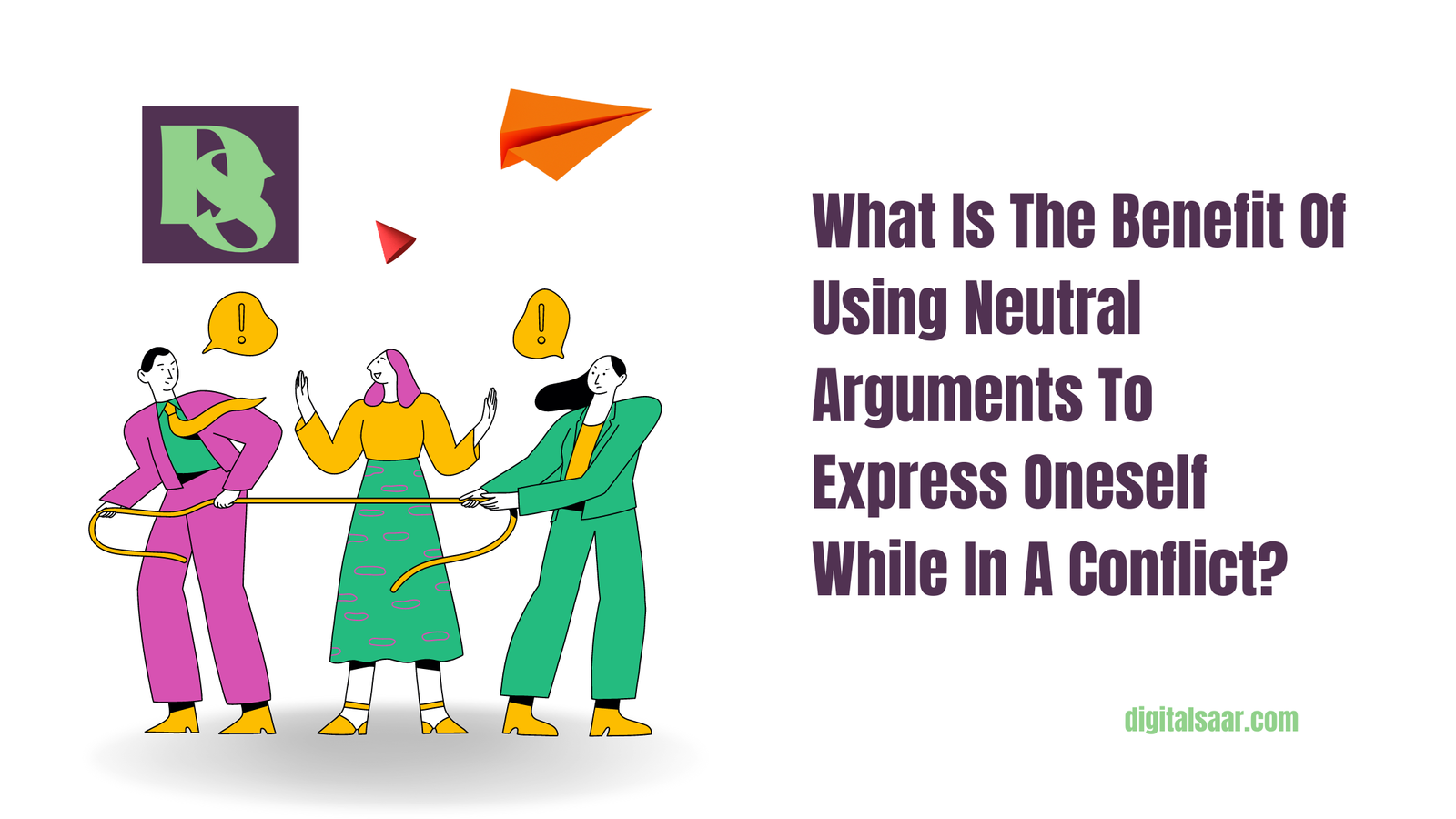What is the benefit of using neutral arguments to express oneself while in a conflict? In any heated situation, emotions often run high, making it easy for conversations to spiral out of control. Whether it’s a disagreement with a colleague or a personal argument with a loved one, tensions can escalate quickly when words are driven by frustration or anger. However, adopting neutral arguments can transform how conflicts unfold, helping to keep discussions calm, productive, and focused on finding solutions. By staying impartial, you not only avoid unnecessary friction but also open the door to better understanding and resolution.
What Are Neutral Arguments?
Neutral arguments are statements or points made without emotional bias, personal judgment, or accusatory language. They focus on facts, logic, and objective reasoning rather than emotional responses or opinions. The goal of a neutral argument is to communicate clearly and calmly, ensuring that the conversation remains constructive, even in a heated conflict. By removing personal attacks or charged language, neutral arguments encourage open dialogue, helping both parties stay focused on the issue at hand rather than getting caught up in emotions.
What Is The Benefit Of Using Neutral Arguments To Express Oneself While In A Conflict?
Using neutral arguments during a conflict can make all the difference between escalating tensions and reaching a peaceful resolution. By keeping your tone calm and your points unbiased, you create an environment where both parties feel heard and respected, rather than attacked. This approach not only helps resolve the immediate issue but also preserves the relationship and opens the door for better communication in the future.
Here are some key benefits of using neutral arguments in conflict situations:
- Reduces emotional reactions: When arguments are neutral, they are less likely to trigger defensive responses, helping to keep the conversation focused on the issue rather than personal attacks.
- Promotes clarity: Neutral language strips away unnecessary emotional layers, allowing both sides to better understand the core problem.
- Encourages productive dialogue: By avoiding accusations and focusing on facts, neutral arguments make it easier for the other person to engage in a calm and open discussion.
- Facilitates quicker resolution: Since emotions aren’t clouding the conversation, it’s easier to arrive at practical solutions that both parties can agree on. Just like how custom fidget spinners help individuals channel nervous energy into something productive, neutral arguments allow discussions to stay on track without unnecessary distractions.
- Builds trust and mutual respect: Consistently using neutral language shows that you value fairness and are committed to resolving the conflict, rather than simply “winning” the argument.
Ultimately, neutral arguments help turn conflicts into opportunities for constructive problem-solving, making it easier to find common ground and move forward without damaging relationships.
Practical Tips For Using Neutral Arguments
Knowing what is the benefit of using neutral arguments to express oneself while in a conflict is one thing, but applying it in real-life situations can sometimes be challenging. To help you effectively use this approach during disagreements, here are some practical tips:
- Stick to the facts: Focus on objective information rather than personal interpretations or emotions. For example, instead of saying, “You never listen to me,” you could say, “During our last conversation, I noticed my point was interrupted several times.”
- Use “I” statements: Express how you feel without sounding accusatory. Instead of “You’re always late,” say, “I feel frustrated when meetings start late because it affects my schedule.”
- Avoid emotional language: Keep your tone calm and avoid words that can trigger defensiveness, such as “always,” “never,” or “should.” Neutral language like “It seems” or “It appears” keeps things less personal.
- Listen actively: Show that you’re open to hearing the other person’s perspective. Repeat or paraphrase their statements to confirm understanding, such as, “So what I hear you saying is…”
- Pause before responding: Taking a moment before responding can help you regulate emotions and ensure your argument stays neutral and balanced.
- Focus on solutions, not blame: Shift the conversation from who is at fault to what can be done to resolve the issue. Ask questions like, “What do you think we can do to improve this situation?”
By practicing these techniques, you’ll experience firsthand what is the benefit of using neutral arguments to express oneself while in a conflict—from reduced emotional tension to quicker, more effective resolutions.
Conclusion
Understanding what is the benefit of using neutral arguments to express oneself while in a conflict can significantly improve how you navigate disagreements. By focusing on facts, staying calm, and avoiding emotional language, you create an environment that encourages open dialogue and productive solutions. This approach not only helps to resolve conflicts more effectively but also strengthens relationships by fostering trust and mutual respect.
If you found this article helpful, don’t forget to share it, and feel free to leave a comment with your thoughts or experiences. Also, make sure to like and follow for more tips on effective communication!





